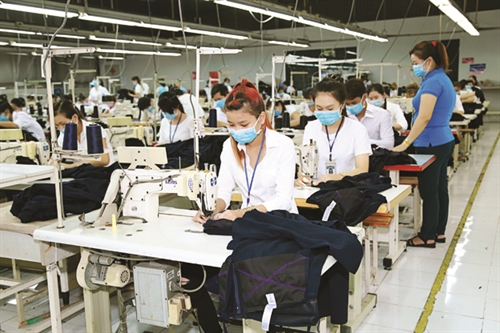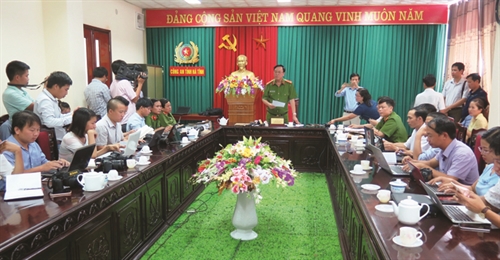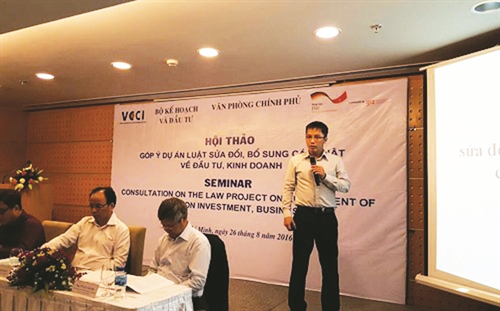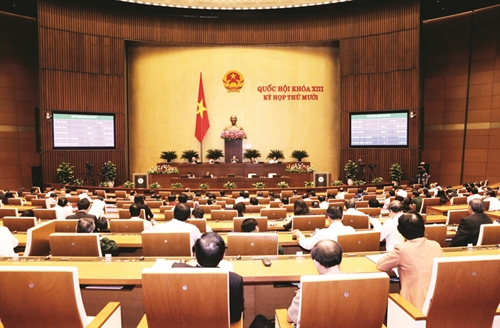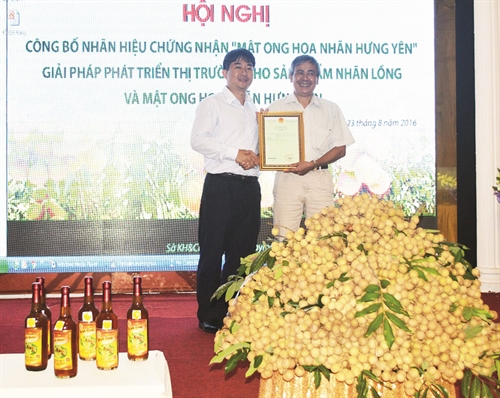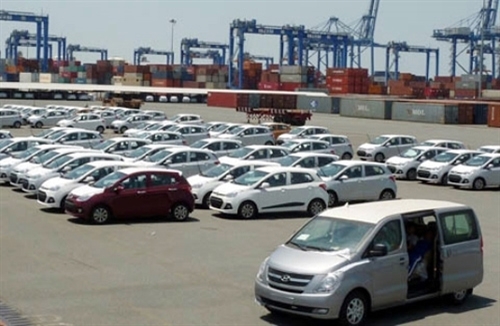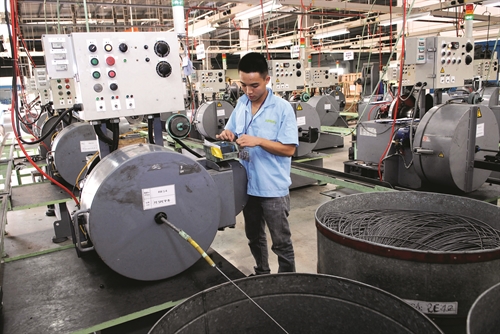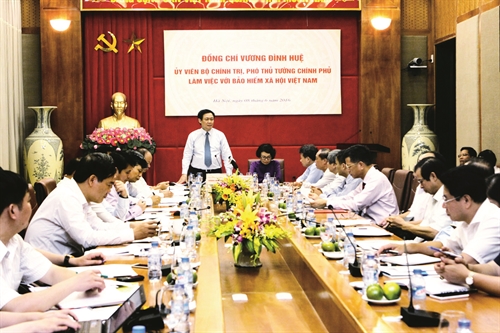Under current Vietnamese legislation, a foreign-invested enterprise (FIE) is understood as an enterprise having a foreign investor as its member or shareholder and is recognized as a Vietnamese one. However, in investment and commercial activities, these entities are subject to different regulations compared to other Vietnamese enterprises. This article brings out these differences in the investment procedures and settlement of disputes involving these FIEs.
Tran Thi Thu Phuong, LL.D.
Economics-Law Faculty, Vietnam University of Commerce
Investment procedures
The 2014 Investment Law (Investment Law), passed on November 26, 2014, and taking effect on July 1, 2015, introduces new provisions on the procedures applicable to FIEs when carrying out investment activities in the form of establishment of economic organizations or entry into business cooperation contracts, purchase of shares or capital contributions, and contribution of capital to economic organizations.
The investment procedures applicable to FIEs depend on the foreign holding rate in the charter capital of economic organizations in general and of enterprises in particular. Based on foreign holding rates in FIEs, the Investment Law divides these enterprises into two categories: foreign-invested economic organizations in Clause 1 of Article 23, and other foreign-invested economic organizations in Clause 2, Article 23, of the Law.
FIEs defined in Clause 1 of Article 23 include:
+ Enterprises in which foreign investors hold 51% of charter capital or more. For partnerships, they will be regarded as FIEs if the majority of their general partners are foreign individuals;
+ Enterprises which have members or shareholders being economic organizations in which foreign investors hold 51% of charter capital or more;
+ Enterprises which have members or shareholders being partnerships in which the majority of their general partners are foreign individuals holding 51% of charter capital or more;
+ Enterprises which have members or shareholders jointly holding 51% of charter capital or more being foreign investors and economic organizations in which foreign investors hold at least 51% of charter capital; and,
+ Enterprises which have members or shareholders jointly holding 51% of charter capital or more being foreign investors and partnerships in which the majority of general partners are foreign individuals.
Depending on the forms of investment, FIEs must carry out different investment procedures.
In case of investment in the form of establishment of economic organizations or entry into business cooperation contracts (BCCs), the to-be-carried out investment procedures include investment policy approval and investment registration. However, not every investment project is subject to both of these procedures; even some do not have to undergo either of these procedures.
Regarding the investment policy approval procedure, the Investment Law uses the criterion of impact on national security, defense, environment, land and socio-economic issues to identify investment projects that are subject to this procedure. These projects are listed in Articles 30, 31 and 32 of the Law. Other projects are not required to go through this procedure. So, this procedural requirement is not based on the type of investor or foreign holding rate in investing enterprises.
As for the investment registration procedure, enterprises defined in Clause 1 of Article 23 must carry out the same investment procedure like foreign investors, that is, investment registration procedure, when making investment in the form of establishment of economic organizations or entry into BCCs. FIEs not defined in Clause 1 of Article 23 do not have to carry out this procedure but may request competent agencies to issue investment registration certificates when they need. These FIEs, however, must make reports under Clause 5, Article 71 of the Investment Law before starting to implement an investment project. This procedure is based on the form of investment and type of investor.
For the same form of establishment of an economic organization or entry into a BCC, an FIE must carry out different investment procedures depending on the size of foreign capital in its charter capital.
The current provisions on investment procedures have some changes compared to the 2005 Investment Law. Under the 2005 Investment Law, which investment procedures must be carried out were determined based on three criteria: source of investment capital (domestic, foreign), size of investment capital, and field of investment of a project. For a project that has an investment capital of under VND 300 billion and is outside the list of conditional investment fields, its investor must carry out the procedure to apply for an investment certificate at the provincial-level investment management agency. Meanwhile, those foreign-invested projects capitalized at VND 300 billion or more and those on the list of conditional investment projects must undergo the appraisal procedure before they get investment certificates. Compared to the 2005 Investment Law, the provisions of the 2014 Investment Law are more favorable for investors and reduce the administrative burden for state management agencies.
In case of investment in the form of contribution of capital or purchase of shares or capital contributions, enterprises are required to register the contribution of capital to or purchase of shares or capital contributions in economic organizations in certain cases. Specifically, when the contribution of capital or purchase of shares or capital contributions leads to an FIE defined in Clause 1 of Article 23 holding 51% of charter capital or more of the economic organization concerned, this FIE must carry out the registration procedure at the provincial-level Planning and Investment Department of the locality where the economic organization’s head office is located. This procedure is new compared to the 2005 Investment Law, which applies the general investment registration procedure for the grant of investment registration certificates (IRCs) for foreign-invested projects. So the 2014 Investment Law has cut administrative procedures for foreign investors and FIEs when they make investment in the form of contribution of capital to or purchase of shares or capital contributions in economic organizations.
In order to identify which investment procedure is applied to an FIE, it is necessary to determine the foreign holding rate in the charter capital of the enterprise. This rate may be determined based on the enterprise’s records stored at the provincial-level Planning and Investment Department or posted on the national business registration portal. The provincial-level Planning and Investment Department not only performs the business registration and issues investment certificates but also carries out the procedure of registering the contribution of capital and purchase of shares and capital contributions. In case an FIE registers its investment at the management board of an industrial park, export processing zone or economic zone, this board may work with the provincial-level Planning and Investment Department or use the business’s records posted on the national business registration portal to control those FIEs falling into the category defined in Clause 1 of Article 23.
On the basis of the Investment Law and guiding Decree No. 18/2015/ND-CP, investors are responsible for the accuracy of their dossiers and for damages caused by their falsified or forged information and documents. In case the declared information is inaccurate, the investment registration agency shall notify the investor of its violation and cancel the investor’s IRC, if it is an original one, or cancel the changes in the certificate which have been made based on the falsified information and restore the previous content of the certificate based on the last submitted valid dossier. At the same time, it will also notify such violation to a competent authority for handling.
For the time being, Decree No. 155/2013/ND-CP on sanctions against administrative violations in the field of planning and investment, which was issued before the 2014 Investment Law and Enterprise Law, remains effective. Article 10 of this Decree metes out pecuniary fines for acts of failing to report or reporting untruthfully on investment activities, making false dossiers of investment projects or implementing investment projects without having an investment certificate. However, this Decree has not yet addressed the failure to perform the obligation of registering the contribution of capital or purchase of shares or capital contributions.
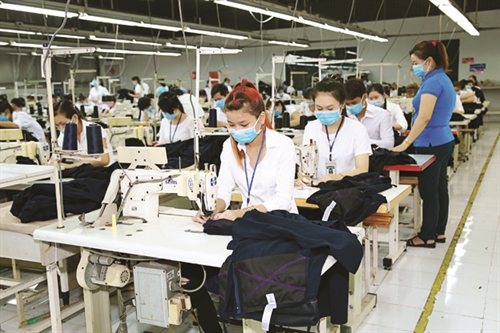 |
| Garment workers at the Made Clothing Vietnam Co., Ltd., in Binh Duong province __Photo: Hai Au/VNA |
Commercial activities
Under Vietnamese law, FIEs are subject to separate regulations concerning a number of commercial activities. Specifically, their purchase and sale of goods and other related activities are regulated by Decree No. 23/2007/ND-CP detailing the Commercial Law (Decree 23). Specifically, goods purchase and sale and the export, import and distribution activities regulated in Chapter IV (Trade Promotion), Chapter V (Commercial Intermediary Activities), Chapter VI (Other Specific Commercial Activities) of the Commercial Law must comply with Decree 23. In order to carry out these activities, an FIE must have a business license or a license to establish second retail shops.
However, as Decree 23 was issued before the 2014 Investment Law and Enterprise Law, it contains several provisions unconformable with these Laws.
First, Decree 23 applies to all FIEs without classification as stipulated in the 2014 Investment Law, saying that all of these enterprises must have a business license or a license to open a second retail shop in Vietnam when wishing to trade in goods and carry out other directly related activities.
Therefore, it is necessary to issue a decree replacing Decree 23 in conformity with the 2014 Investment Law and Enterprise Law. The new decree should regulate trading activities of FIEs on the basis of the classification stipulated in Article 23 of the 2014 Investment Law. Only those defined in Clause 1 of Article 23 should be required to have a business license or a license to open wholesale shops or second retail shops. For other enterprises defined in Clause 2 of Article 23, they do not need a business license, except when establishing wholesale or retail shops. These proposed provisions conform with Vietnam’s commitments on market opening and investment conditions on foreign investors and foreign-invested economic organizations provided in the 2014 Investment Law. Because control of FIEs is control of foreign investors being shareholders or members of these enterprises in accordance with Vietnam’s commitments on market opening and investment conditions established by Vietnamese law. Therefore, the imposition of investment and business conditions on FIEs may only aim to implement Vietnam’s market opening commitments in treaties which Vietnam has signed or Vietnam’s law on investment and business conditions.
At present, the investment and business conditions applicable to FIEs can be found in the following treaties:
(1) Schedule of Vietnam’s commitments in the WTO (2007);
(2) ASEAN Comprehensive Investment Agreement (ACIA) (2009);
(3) ASEAN Framework Agreement on Services (AFAS) (2014);
(4) Free Trade Agreements between:
- ASEAN and China (ACFTC -
2005);
- ASEAN and South Korea (AKFTA -
2007);
- ASEAN and Australia/New Zealand (AANFTA - 2010);
- ASEAN and India (AIFTA - 2010); and,
- Vietnam and South Korea (VKFTA- 2015);
(5) The Agreement on ASEAN-Japan Comprehensive Economic Partnership (AJCEP - 2008);
(6) The Vietnam-US Bilateral Trade Agreement (BTA - 2000); and,
(7) The Vietnam-Japan Bilateral Investment Treaty (BIT - 2003) and Vietnam-Japan Economic Partnership Agreement (VJEPA - 2008).
In case a treaty of which Vietnam is a member does not provide business conditions applicable to foreign investors, these conditions must comply with Vietnamese law. According to Article 7 of the Investment Law, investment and business conditions are aimed at ensuring national security and defense, social order and safety, social morality and community health.
The investment conditions on foreign investors include the holding rate of foreign investor in the charter capital of economic organizations; form and scope of investment; Vietnamese partners in investment activities and other conditions set by investment treaties as well as relevant Vietnamese laws, ordinances and decrees. So, regulations in the decree replacing Decree 23 on business licenses or licenses to open additional retail shops beyond the first one must take into account the above conditions.
Second, compared to the 2014 Investment Law, a number of provisions on the licensing competence and procedures in Decree 23 are no longer appropriate. Under the 2014 Investment Law and Enterprise Law, the procedures for investment registration and establishment of businesses are two separate ones. Therefore, the provision of Decree 23 that the investment license is concurrently the business license is unconformable with these two laws. Another provision of this Decree requiring the written approval of the Ministry of Trade (now the Ministry of Industry and Trade) as a condition for the grant of the investment certificate also clashes with the new provisions on the two separate procedures mentioned above.
According to the Government Office’s Official Letter No. 1315/VPCP-KTTH dated March 2, 2016, pending the issuance of the decree replacing Decree 23, foreign-invested businesses are still regulated by Decree 23. In this document, the Government assigns the Ministry of Industry and Trade to consider assigning provincial-level Industry and Trade Departments and management boards of industrial parks, export-processing zones, economic zones and hi-tech parks to grant, re-grant and modify the above licenses. However, this assignment is not totally appropriate. The competent body should be a body attached to the provincial-level People’s Committee of the locality where the retail shop is expected to be opened in order to conform with the task of examining the economic demand of this locality.
Settlement of disputes in investment and commercial activities
Concerning the settlement of disputes over investment involving one party being an FIE, Article 14 of the 2014 Investment Law stipulates that negotiation and conciliation are two methods of dispute settlement that must be used first. Only when these methods fail, can the disputing parties resort to the method of settlement by an arbitration or a court.
FIEs should note that the method of dispute settlement by an arbitration or a court they are entitled to use depends on the rate of foreign capital in the enterprises. For disputes arising between FIEs defined in Clause 2, Article 23 of the Investment Law, between FIEs defined in Clause 2 of Article 23, and domestic investors or state management agencies in charge of investment, they should be settled by a Vietnamese arbitration or court.
For disputes involving at least one party being an FIE defined in Clause 1, Article 23 of the Investment Law, the disputing parties may use a foreign arbitration, an international court or an arbitration established by themselves, in addition to a Vietnamese arbitration or a court, to settle. It can be seen that Vietnamese law allows FIEs to use the methods of dispute settlement as the same as those that may be applied by foreign investors. However, it should be noted that the provisions on the methods of dispute settlement to be used by FIEs mentioned above are only applied to disputes related to business and investment activities carried out in the forms of establishment of economic organizations, BCCs, public-private partnership contracts, purchase of shares and capital contributions, and contribution of capital. For other disputes, the disputing parties must observe relevant laws.
These provisions are not applicable to other activities, including commercial ones. Therefore, the above-mentioned limitation on the methods of dispute settlement to be used by FIEs is not applied to disputes arising from commercial activities carried out by these entities. Specifically, the Commercial Law entitles the disputing parties to settle their disputes through negotiation, conciliation, arbitration and court. Regarding the dispute settlement by arbitration, the Commercial Law and Commercial Arbitration Law do not contain any specific provision that restricts the methods of settlement of disputes arising from commercial activities that FIEs may use. Therefore, these enterprises may together with the other party to the dispute select foreign arbitration, international arbitration or arbitration as agreed to settle their dispute. However, the problem here is that Vietnamese law lacks clear provisions on international arbitration. Article 3 of the Commercial Arbitration Law explains foreign arbitration but not international arbitration. Similarly, the 2015 Civil Procedure Code makes no mention on the recognition and enforcement of awards of international arbitration. How should international arbitration be defined? Is it necessary for an award of an international arbitration to be recognized and enforced in Vietnam? Could provisions on recognition and enforcement of awards of foreign arbitration be applied to those of international arbitration? These questions need clear answers from Vietnamese lawmakers.
As for the method of dispute settlement by court, whether an FIE to a dispute can select a Vietnamese or foreign court depends on the foreign elements in the dispute. Disputes arising from commercial activities in which FIEs constitute one disputing party will be regarded as those involving foreign elements in the following cases:
+ The establishment, change, implementation or termination of the relation takes place in a foreign country; and,
+ The object of the relation is located in a foreign country.
One their dispute falls into either of the above cases, an FIE may agree with the other disputing party to select a Vietnamese court or any foreign court to settle it. In other cases, the disputing parties may only bring their dispute to a Vietnamese court, if they do not select arbitration as a way to resolve their dispute.
Besides, an FIE involved in a dispute is also entitled to select the law for the settlement of the dispute in certain cases. For example, for disputes related to investment, an FIE defined in Clause 1, Article 23 of the Investment Law may reach agreement on application of the law of a foreign country or international investment practices as long as such law or practices are not contrary to Vietnamese law.
This is a distinct provision of the Investment Law compared to general law on this issue. Under the provisions of civil law applicable to relations involving foreign elements, an economic organization set up in Vietnam in accordance with Vietnamese law and having a foreign investor being a shareholder or a member owning as much as 100% of its charter capital is still regarded as a Vietnamese economic entity. A contract signed between such economic organization and a domestic investor or another FIE is not regarded as involving a foreign element in terms of its subjects (contracting parties). The 2014 Investment Law permits an FIE defined in Clause 1 of Article 23 to select an applicable law although as per the 2015 Civil Code it is not a foreign subject. So, the Investment Law, as a specialized law, prevails in this case.
In a nut shell, in disputes related to investment, the rate of foreign capital in a business plays an important role in establishing the right of the disputing parties to reach agreement on applicable foreign law or international investment practices to regulate their relation. The Investment Law seems to give legal incentives for FIEs defined in Clause 1 of Article 23.
However, regarding disputes related to commercial activities, source of capital of a business is not a criterion for establishing the right of the business to reach agreement with the other disputing party on applicable foreign law or international investment practices. The criteria for establishing this right are determined in the 2015 Civil Code as follows:
+ When at least one subject is a foreign individual or legal person, or,
+ When the establishment, change, implementation or termination of such relation takes place in a foreign country, or,
+ When the object of the civil relation is located abroad.
So, for the first criterion, the involvement of an FIE in a dispute does not constitute a foreign element in the relation. For the second and third criteria, if the relation between such enterprise and a partner meets either of them, the disputing parties are entitled to select a foreign law or international commercial practices to govern their relation, without depending on the rate of foreign capital in the FIE.
Conclusions
It can be said that current Vietnamese legislation contains distinct provisions applicable to investment and commercial activities of FIEs in Vietnam. These provisions aim to realize Vietnam’s market opening commitments in treaties of which the nation is a member or originate from the Vietnamese legal system. The above analysis also proposes some actions to be taken soon:
+ Issuing a new decree to replace Decree No. 155/2013/ND-CP in synchrony with the 2014 Enterprise and Investment Laws and Decree No. 118/2015/ND-CP. This decree should add the violation of failing to perform the obligation to register the contribution of capital or purchase of shares or capital contributions;
+ Issuing a decree to replace Decree No. 23/2007/ND-CP, which must ensure implementation of Vietnam’s commitments on investment conditions in treaties and the provisions of the 2014 Investment Law on investment and business conditions; and,
+ Adding regulations on international arbitration as well as the recognition and enforcement of awards of international arbitration in Vietnam.-
